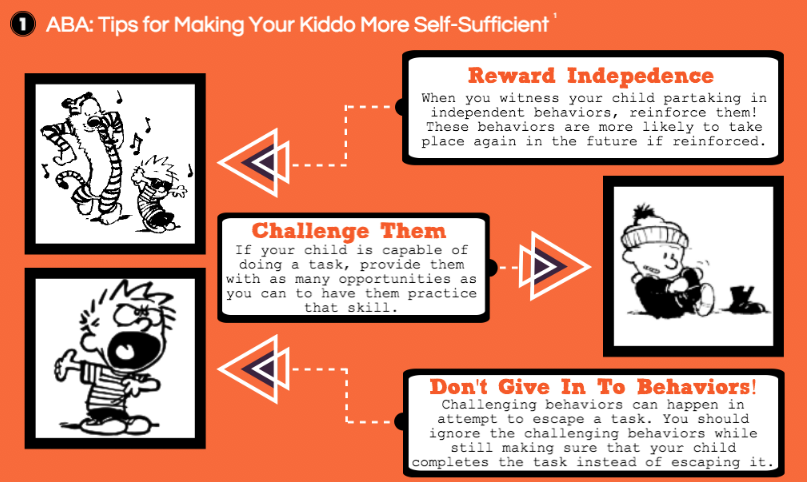Generalizing ABA Skills Into Your Home
July 17, 2018
As soon as your child was diagnosed with autism spectrum disorder you most likely began to be told, “you have to get ABA services!” At the time, it may have felt like another confusing acronym of hope to make your child “normal” so, of course, you signed them up for ABA therapy. While this quick action is wonderful, ABA services are actually much more effective the more the family is involved and informed in the process of therapy. Your ABA therapists are only in your home working with your child for a small portion of the each day. It is pivotal for the development and growth of your child for you to practice the skills they are learning in ABA in order to generalize them throughout the rest of their week.
But how in the world do we expect you to do this when you are juggling so many other things throughout your week? What if you work outside of the home and are trying to raise other children as well? What if you are not “naturally inclined” towards “teaching” or “therapy”? Being actively involved in your child’s ABA therapy does not mean that you have to sit in on every session and duplicate those sessions for the rest of the hours of the week. This blog is not meant to be a strict guilt-provoker for you, but rather a useful tool with practical tips that you can immediately apply to your already day to day routine with your child with autism.
First, let’s start with defining “ABA.” Applied Behavior Analysis is a set of principles that forms the basis for behavioral treatment. It is considered an evidence-based treatment for individuals with autism spectrum disorder and other types of behavioral disabilities. The therapists that are coming into your home to work with your child with autism are running programs that apply ABA principles to your child’s learning in order to facilitate communication, behavioral norms, and independence throughout their life. The programs they are running should be simple ones that can be generalized to all aspects of daily life for your child.
Now that we are on the same page, here are some quick tips that can support you in practicing ABA skills with your child outside of formal therapy hours:
- Ask your therapists to update you on the current programs that they are running with your child. You can even find out which programs may be the simplest for you to apply to the rest of your child’s day!
- Praise your child for good behavior and using appropriate words! Your child needs to understand what type of behaviors will get him your positive attention.
Wait for your child to request things through words, picture symbols, or other modes of communication. - Ask your child to do simple motor commands such as jump, clap, touch your head, touch your toes, etc.
- Provide your child with structure throughout the day! The same routines for the morning and evening, clear communication for changes, and the same expectations for independence.
- Read books with your child. Sing songs with your child. Play games with your child!
 Source: First Leap Pediatric Therapy
Source: First Leap Pediatric Therapy
There are so many more tips that your behavior therapists can give you, but remember to start small. Make a goal for yourself to work on one of these things listed above per week and then soon implementing ABA principles into your everyday life will be happening naturally!
« Always Unique, Totally Interesting, Sometimes Mysterious Choosing the Right Tools to Facilitate Communication »
